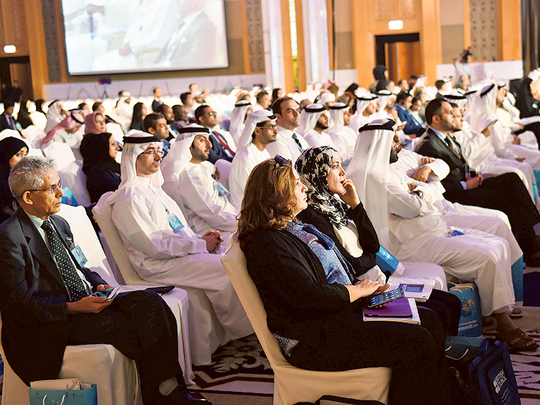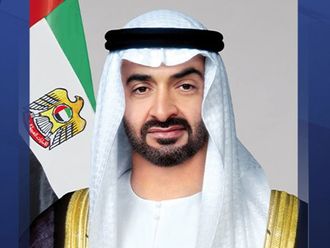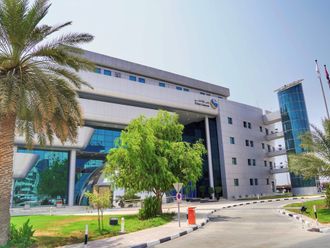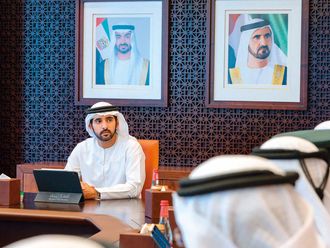
Dubai: The UAE received the highest scores in the 2015 Arab Knowledge Index, proving to be one of the most knowledgeable countries in the Arab world. The Arab Knowledge Index, launched at the Knowledge Summit 2015 today, monitors the status of knowledge in the Arab world. The report offers decision-makers, experts and researchers information on the status of knowledge in Arab countries, helping them implement development policies for building knowledge societies as well as regional and national programmes of world-class standards.
The Arab Knowledge Report is a joint initiative between the Mohammad Bin Rashid Al Maktoum Foundation (MBRF) and the United Nations Development Programme (UNDP).
According to the index, UAE came on top in most of the six main indices used to measure Arab countries in the Arab World.
The six indices are the higher education index, economy index, technical vocational education and training index, pre-university education index, information and communications technology and research innovation index.
The UAE scored 77.59 per cent in the economy index, 77.48 per cent in the information and communication technology index, 72.56 per cent in the higher education index, 68.56 in the pre university education index, 60.79 per cent in technical vocational educational and training index and 50.08 in the research and development index.
Another country that received high scores in all six indexes was Qatar which received 75.58 per cent in the economy index, 76.22 per cent information and communication technology index, 59.41 per cent in the higher education index, 66.23 per cent in the pre university education index, 59.32 per cent in technical vocational educational and training index and 40.45 in the research and development index.
Saudi Arabia was also among the highest scoring countries as it received 64.72 in the economy index, 69.58 per cent in the information and communication technology index, 62.43 per cent in the higher education index, 67.39 per cent in the pre-university education index, 56 per cent in technical vocational educational and training index and 56.84 per cent in the research and development index.
Countries with the lowest scores included Somalia, Syria, Comoros, Iraq, Libya and Yemen, to name a few.
Jamal Bin Huwaireb, managing director of MBRF, speaking at the opening of the Knowledge Summit, said that moving towards a knowledge-based economy requires developing and employing innovation in the dissemination and transfer of knowledge in fields such as education, scientific research and information technology. “Societies based on knowledge are able to innovate and follow values of coexistence,” Bin Huwaireb said.
Dr Sima Bahous, United Nations Assistant Secretary-General and director of the Regional Bureau for Arab States in UNDP, said the Arab Knowledge Index is the essential link between knowledge, innovation and sustainable development.
“Together, they provide two key tools in the pursuit of knowledge-driven societies and economies, which are critical to achieving sustainable human development in the Arab region,” she said.
In a televised speech, Ban Ki-moon, UN Secretary-General, noted that “Arab Human Development Reports have shown that the region needs more knowledge, women empowerment, and freedom” and that many Arab countries suffer from terrorism, repression and human right violations.
“In the Arab region, we need to expand investment, quality education and encourage critical thinking and foster dialogue,” Ban added. “The Arab world has contributed to human progress over many centuries, [and] a dynamic vision can advance progress for local innovation, scientific research and diversity. The UN stands with you in this effort,” he said.
Ahmad Al Shugairi, Saudi activist, media figure and presenter of well-known TV programme Khawater, referred to the improvement in the literacy rate in the Arab world, which from 18 per cent in 1960 has jumped to 82 per cent this year.
Al Shugairi attributed this improvement to adopting the right policies in terms of ensuring that every child has access to education. But there is more work to be done, he said, as compared to other countries.
“We need to see literacy levels reach 100 per cent,” said Al Shugairi. “There are many Arab countries falling behind,” he said.
He added that the index also found that the Arab world has witnessed growing literacy rate over the last few decades.
At the same time, the literacy rate in several countries experiencing unrest in the region has come down drastically to 38 per cent.
—With inputs from Mary Achkhanian, Staff Reporter











